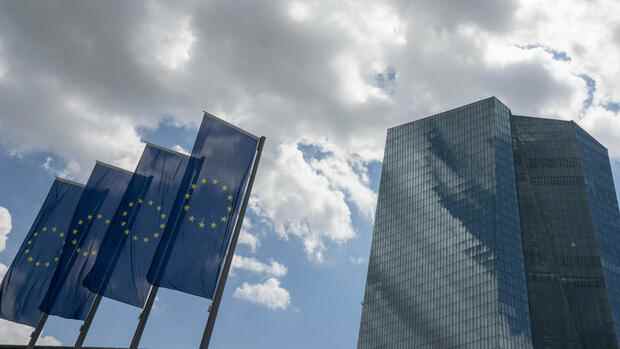The central bank had raised interest rates for the first time in eleven years last week.
(Photo: dpa)
Frankfurt The inflation rate in the euro area rose by 8.9 percent in July compared to the same month last year. This was announced by the European statistical office Eurostat on Friday morning. In June, inflation was still 8.6 percent.
The rise to the new record high came as a surprise. Economists had expected an unchanged rate. In Germany, the Federal Statistical Office had reported a slight decline in the inflation rate to 7.5 from the previous 7.6 percent. Short-term special effects such as the 9-euro ticket and the tank discount seem to have an effect here.
However, the Federal Office and the European statistical authority Eurostat calculate the price increase differently. The composition and adjustment of the sample shopping carts, from which the price increases are calculated, is different. According to the harmonized European method of calculation, inflation in Germany would be 8.5 percent.
Either way, the inflation rate in the euro area is far higher than the two percent level targeted by the European Central Bank. “The inflation problem is getting bigger and bigger,” says Commerzbank economist Christoph Weil. In his view, the pressure on the central bank to raise interest rates again significantly in September is now increasing.
Top jobs of the day
Find the best jobs now and
be notified by email.
It is not only the overall level of inflation that is striking – the differences between the countries are also clear.
Where inflation is highest
The value in Estonia is 22.7 percent, in Latvia 21 percent and in Lithuania it was 20.8 percent. In France, on the other hand, it is 6.8 percent. The values are also comparatively lower in Malta (6.5 percent) and Italy (8.4 percent).
This is also leading to tensions within the central bank. The central bank heads from the Baltic states in particular are vehemently pushing for a quick tightening of monetary policy.
The head of the Latvian central bank, Martins Kazaks, has already spoken out in favor of another major interest rate hike: “I would say that the interest rate hike in September must also be quite significant.” In contrast, the head of the Italian central bank recently said that it was still too early to estimate the level of the interest rate increase next ECB rate hike.
The ECB had already raised interest rates by a surprising amount last week – the base rate rose by 0.5 percentage points. It was the first increase in the euro area in eleven years.
According to Eurostat, energy prices in particular rose in July. They rose by 39.7 percent year-on-year, after a plus of 42.0 percent in June. Unprocessed food prices increased by 11.0 percent, service prices increased by 3.7 percent.
More to come.
